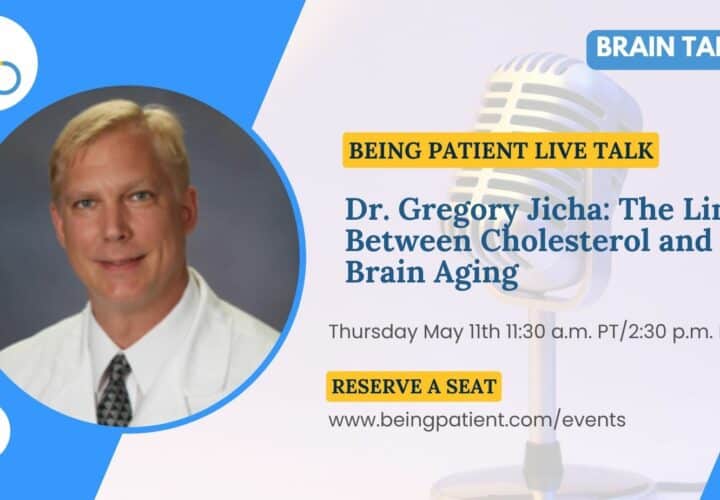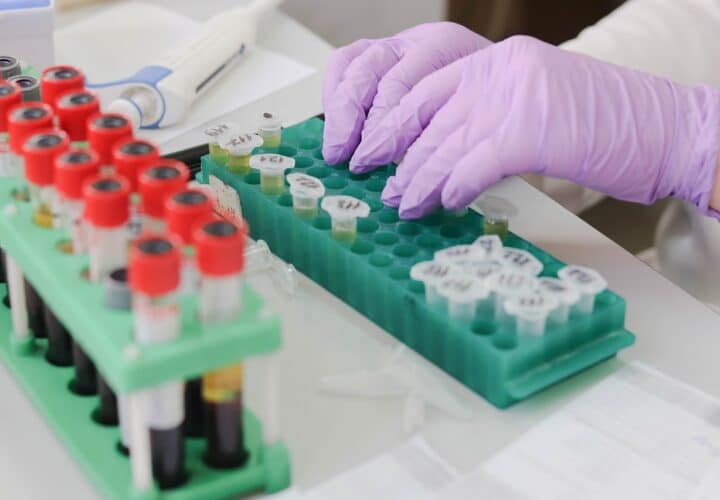Surprising findings from research conducted by a European consortium linked high levels of what have been so far thought of as “good” cholesterol — HDL — to Alzheimer’s disease.
According to the CDC, about 25 million Americans have high levels of cholesterol. Another 86 million people have elevated levels considered borderline high. Cholesterol build up damages the blood vessels and increases blood pressure. As a result, high levels of cholesterol increase the chances of developing dementia.
A landmark study on dementia risk found that some 40 percent of dementia cases are generally preventable through addressing 12 key health and lifestyle factors.
It’s known that the build-up of cholesterol plaques can damage the blood vessels in the brain, and high levels of LDL (so-called “bad”) cholesterol was one of the eight most important of these factors.
Meanwhile, there’s a different type of cholesterol — the “good” kind: HDL. Past research has linked HDL to better health. But, a 2023 study throws a wrench into this theory.
A consortium of European researchers published their findings in JAMA Network Open, comparing 39,106 participants with Alzheimer’s and 401,577 controls to understand the links between genes, and modifiable risk factors for the disease. They found this “good” and “bad” dichotomy doesn’t hold up when it comes to Alzheimer’s: Genes associated with high levels of HDL cholesterol and blood pressure were also associated with Alzheimer’s.
How strong is the link between HDL cholesterol and Alzheimer’s
In this study, researchers looked for links between 12 modifiable risk factors for Alzheimer’s and small genetic variants. What exactly are these small genetic variants?
The genetic instructions for every cell in the body is written using a molecular “alphabet”. These genetic variants are simple changes where an “A” somewhere in the instruction manual is changed to a “T”. Each individual variant has a miniscule influence on the body, but hundreds or thousands of these small variants together influence blood pressure or cholesterol levels.
People with high levels of cholesterol had a 10 percent higher risk of developing the disease. While the authors of the study aren’t certain why HDL is linked to Alzheimer’s, they believe that high HDL makes it harder for the brain to clear beta-amyloid plaques. Other researchers who weren’t involved in the study offered their own explanations online.
“It has long been recognized that HDL can serve as a double-edged sword, playing both anti-inflammatory and pro-inflammatory roles in cardiovascular disease,” Ling Li, professor of pharmacology at the University of Minnesota, Twin Cities wrote on AlzForum.“In fact, recent studies have demonstrated a U-shaped relationship between HDL-C and adverse outcomes, with both low and extremely high HDL increasing the risk.”
Both high and low levels of HDL cholesterol might be bad for cardiovascular health. Li added that HDL cholesterol is linked to good cardiovascular health. The people with good cardiovascular health live longer and are therefore more likely to develop Alzheimer’s late in life.
“Extensive research in HDL biology over the past two decades has illustrated its complexity and explained why targeting HDL cholesterol is not effective,” noted Hussein Yassine, an associate professor at the Keck School of Medicine at the University of Southern California.
While every single LDL particle looks the same, this isn’t the case for HDL. There are many different types and sizes of HDL with different biological functions.
Importantly, HDL in the brain is much different from the HDL measured in the bloodstream. Drugs that target HDL in the blood are thus unlikely to impact HDL in the brain. the researchers say.
The study also only measured these variables at one point in time, making it hard to tease out the specific effects of HDL cholesterol. More research is warranted to understand this relationship — people with high levels of HDL cholesterol need not worry.
But what is cholesterol, LDL, and HDL doing in the brain anyways?
APOE and beta-amyloid
The majority of the body’s cholesterol is actually made in the brain. The cholesterol in the bloodstream doesn’t actually get to the brain. It is used for other biological processes throughout the body.
Carrier proteins called APOE transport cholesterol throughout the body and the brain. There are many different variants of the APOE protein. People who carry one or two copies of APOE4 are at a substantially higher risk of developing Alzheimer’s. Meanwhile, APOE2 version may reduce the risk of developing the disease.
That’s because some versions of the protein like APOE4 don’t do their job well.
In the body, APOE is responsible for moving around the LDL and HDL cholesterol which comes from the diet. The build-up of LDL cholesterol clogs blood vessels and increases blood pressure. This damages the blood vessels, making it harder to get oxygen and nutrients to the brain. It becomes more susceptible to disease.
In the brain APOE is also involved in clearing beta-amyloid proteins, moving them out of the brain before they form plaques.
Lowering LDL cholesterol could lower Alzheimer’s risk
“A lot of the new thinking is, if it’s good for your heart, it’s good for your brain,” says Dr. Gregory Jicha, a neurology professor at the University of Kentucky. “That’s a simple way for us to remember: things like cholesterol and exercise that prevent heart disease also prevent wear and tear on the brain.”
The authors of a 2021 study published in Lancet Health Longevity on the link between cholesterol and dementia noted that: “In people with cholesterol measured below age 65 the risk of dementia being diagnosed more than 10 years later was about 60 percent higher in those with LDL cholesterol levels above 200 mg/dL (5.17 mmol/L) compared to those with levels less than 100 mg/dL (2.6mmol/L).”
The good news is that if you’re worried about high cholesterol, it’s possible to get it under control. Here are three ways to get started.
- Make smart dietary changes
Eating a healthy diet can improve brain health through a variety of mechanisms. The MIND diet is one such culinary powerhouse known to lower blood pressure and cholesterol, and dementia risk. This diet consists of a hefty serving of vegetables, berries, whole grains, beans, legumes, fish, and poultry.
In addition, eating a MIND diet means cutting down on red meat, and cheeses. Limiting junk food is another way to cut out unhealthy, high cholesterol foods from the diet.
- Get the heart pumping
Many people don’t know that exercise can also lower the levels of cholesterol. In particular, moderate exercise like jogging increases the levels of good HDL cholesterol. More intense exercise also lowers bad LDL cholesterol levels. Getting the heart pumping as much as possible will help reduce the risk of dementia.
- Talk to your doctor about cholesterol-lowering medications
Certain drugs for cholesterol lower the levels of overall cholesterol and LDL cholesterol. Other drugs can help keep HDL cholesterol high. (Note until there is more research, high levels of HDL cholesterol shouldn’t worry you.)
One type of drug often prescribed for high levels of overall cholesterol, statins, reduces the amount of cholesterol produced in the liver while helping remove the cholesterol in the blood.
In turn, studies on statin and dementia have found they appear to reduce a person’s risk of developing Alzheimer’s and other forms of dementia.
There might be more going on here: Scientists are still working to learn the extent to which this class of drugs interacts directly with the brain. What they’ve seen so far: Some statins appear to reduce Alzheimer’s risk by as much as 20 percent.
Fibrates are another important class of cholesterol-lowering drugs. Jicha is currently running clinical trials testing whether they slow amyloid buildup in the brain, halting the progression of Alzheimer’s.
As with any prescription drug, however, doctors and patients need to weigh the potential benefits of statins and fibrates against their side effects. Some experts say their risks are overhyped. “These drugs really do save lives,” Dr. Heather Ferris, a clinical endocrinologist and scientist at the University of Virginia told Being Patient of statins. “I can’t tell you how much time we spend as physicians trying to get cardiac patients back on their statins because of the clickbait they read.”




